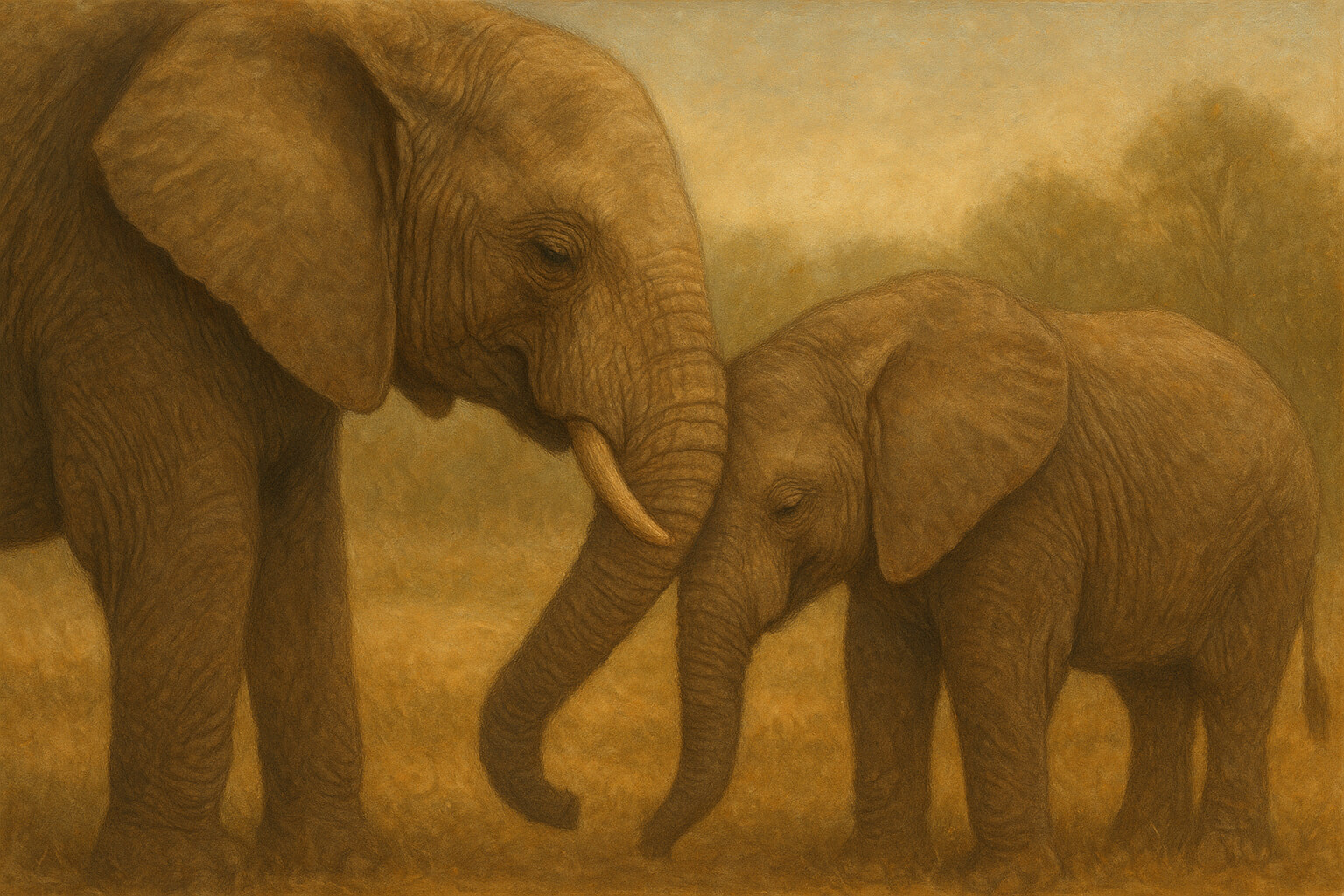The Emotional Lives of Animals: What Science Says

For centuries, humans have debated whether animals experience emotions in a way that mirrors our own. Early science often dismissed the idea as anthropomorphism — attributing human-like emotions to animals. However, modern research presents a different narrative. From elephants mourning their deceased companions to dogs displaying joy upon reunion, the evidence increasingly suggests that animals do indeed feel — and that their emotional experiences are complex, profound, and often strikingly similar to our own.
Do Animals Really Feel Emotions?
- Scientific studies have provided compelling evidence that many animals experience emotions such as joy, fear, grief, and even empathy. Elephants, for example, have been observed grieving the loss of a family member, demonstrating behaviors akin to mourning. Dolphins are known to show empathy, helping injured pod members to the surface to breathe. Dogs, with their intuitive understanding of human emotions, often respond with comforting behaviors when their owners are stressed or upset.
- Research in neuroscience also supports this growing body of evidence. Animals, especially mammals, have brain structures — like the amygdala — that are involved in emotional processing, similar to those found in humans. These similarities indicate that animals likely experience a range of emotions, just as we do.
- As highlighted in National Geographic, animal behavior is increasingly being recognized as driven by emotions rather than just instincts or survival mechanisms. This shift in understanding has profound implications for animal welfare, ethics, and conservation.
Empathy and Social Bonds
- Empathy, long considered a uniquely human trait, is now known to exist in many animal species. In fact, certain animals display advanced forms of empathetic behavior that suggest they deeply understand and share the emotional states of others. For example:
- Rats have been observed freeing fellow rats from traps, even without the promise of a reward.
- Elephants frequently assist injured or distressed companions, often staying by their side for extended periods.
- Dogs, with their strong emotional intelligence, can sense their owners' stress and provide comfort through physical closeness, licking, or simply lying beside them.
- Understanding empathy in animals encourages us to treat them not just as pets or tools, but as beings with emotional depth. This perspective is integral to fostering ethical pet ownership, where the emotional well-being of animals is respected and prioritized.
Grief and Mourning in the Animal Kingdom
- Perhaps one of the most profound demonstrations of animal emotion is grief. The mourning behaviors displayed by animals highlight their deep emotional lives. For instance:
- Elephants have been observed gathering around the bones of deceased family members, sometimes staying near them for days, touching the bones with their trunks, and exhibiting signs of distress.
- Dogs and cats often show signs of depression and mourning after the loss of a companion, whether it's a fellow animal or even their human family member.
- Crows and other birds have been observed holding "funeral-like" gatherings when one of their group dies, often sitting silently around the deceased, a practice that suggests an awareness of loss.
- The recognition of grief in animals challenges how we view animal welfare. As discussed in The Link Between Animal Cruelty and Human Violence, understanding that animals can feel complex emotions like grief helps us rethink our responsibilities toward them, not only as beings deserving of respect, but also as sentient creatures capable of love, loss, and emotional growth.
Why Understanding Animal Emotions Matters
- Recognizing that animals experience emotions profoundly impacts a variety of areas:
- Animal Welfare: Recognizing the emotional lives of animals can reshape policies surrounding farming, research, and entertainment industries. Ethical considerations must include not only the physical well-being of animals but also their emotional and psychological health.
- Conservation: Protecting species like elephants, whales, and primates involves more than just preserving biodiversity. It’s about safeguarding emotional communities — bonds that animals form with one another. For example, the loss of a matriarch in an elephant herd can have significant emotional and social consequences for the entire group.
- Human-Animal Relationships: Acknowledging the emotional depth of animals enriches our relationships with them. Whether as pets, service animals, or working animals, recognizing their feelings strengthens bonds and encourages deeper empathy. Understanding animal emotions also plays a crucial role in the growing movement toward animal adoption, where many families report not only a sense of joy but also emotional healing and connection when adopting pets, especially those who have faced trauma or loss.
Moving Toward a Compassionate Future
- As science continues to reveal the emotional complexity of animals, it’s clear that they are not mere objects or commodities, but sentient beings with their own capacity for love, grief, and empathy. Moving forward, we must embrace ethical practices that honor their emotional lives. This means supporting:
- Wildlife sanctuaries and animal conservation efforts, ensuring species are protected not only for their ecological value but also for their emotional and social well-being.
- Ethical food choices by supporting humane farming and fishing practices that prioritize animal welfare.
- Responsible pet ownership that acknowledges the emotional needs of pets and supports their mental well-being, particularly for those rescued from shelters or harsh environments.
- As we continue to evolve in our understanding of animal emotions, we have an opportunity to build a more compassionate world — one where we not only preserve species but also recognize their emotional depth and capacity for connection.
